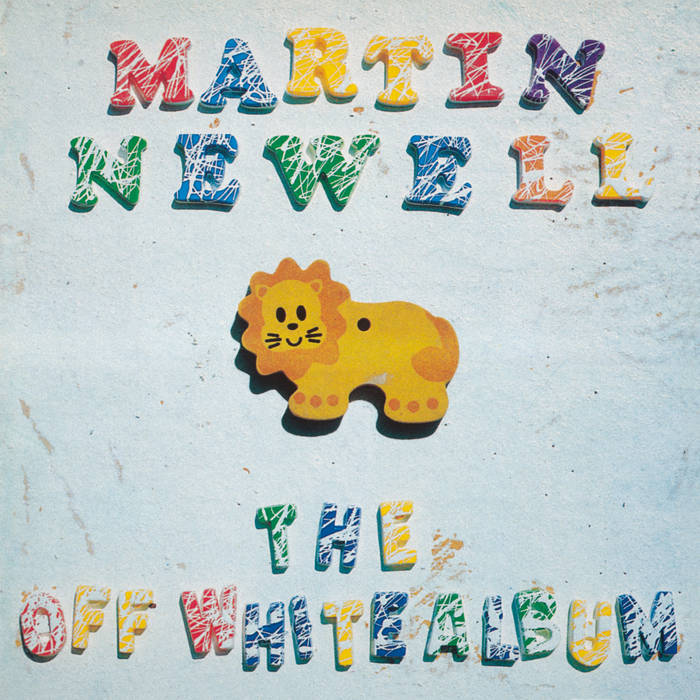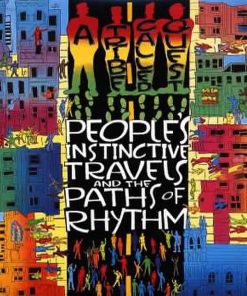Martin Newell – The Off White Album LP (Ltd White Vinyl Edition) Captured Tracks
$ 22,98 Original price was: $ 22,98.$ 13,79Current price is: $ 13,79.
The title of Martin Newell’s second solo album comes from a cheeky riff on the Beatles’ White Album: if 1993’s critically-acclaimed The Greatest Living Englishman was Newell’s Sgt. Pepper’s, then it’s only right that it’s demure successor be called The Off White Album. There’s even a little pastiche of “While My Guitar Gently Weeps” on “Queen Phyllis Of Colchester” – Newell led the song in with a one-finger piano motif, then asked XTC’s Dave Gregory to give him his best impression of Fresh Cream-period Clapton. But that’s where the Beatles jokes end; The Off White Album stands on it’s own, a vivid snapshot of Newell’s life with a French chanson-inspired ease.
Sonically, the record contains a Gallic élan that distinguishes it from Newell’s prior work with the Cleaners From Venus. A longtime fan of French music, he sought the same quality on this record – with the vocal riding at the top of the mix, rather than blurred under indie rock guitars, as was common at the time. The record’s producer, él Records fixture Louis Philippe, was happy to oblige. The effect is a clarity of both form and content – on “Arcadian Boys,” Newell’s impassioned voice careens over a heartbreaking string quartet (arranged by Philippe himself) as he wonders what’s become of those “too late for the sun.” It’s a much more emotional take on the song than the guitar-laden, uptempo version that appears on the Cleaners From Venus’ My Back Wages. But The Off White Album doesn’t dwell too long in solemnity – it’s still a Martin Newell record, after all. His classic wit is on full display, whether he’s putting an irreverent spin on the Smiths (“Some Girls Are Bigger Than Others”) or fondly warning a neighbor to “watch your chemicals, girl” (“The Girls In The Flat Upstairs”). Despite it’s more stripped-down sound, The Off White Album was the product of a group effort: in autumn 1994, Newell, bassist Paul Tivy, guest guitar Dave Gregory, drummer Joe Whitehead, keyboard player Philippe, and the aforementioned string quartet piled into a garage studio in Colchester to record the basic rhythm tracks. A month later they decamped to Chiswick Reach Studios in London to record vocals, strings and other goodies. The whole album took just 23 days’ work. As Newell recalls it, “we came in under the deadline and were only a few hundred pounds over budget. Then we all went home for Christmas.” A rich cast of characters make up The Off White Album, via both the process of it’s recording and the subjects of it’s songs. It’s a record born on the road, inspired by Newell’s experiences travelling through Europe and Asia the year of it’s inception. Perhaps the clearest portrait that emerges as the album draws to a close, however, is one of Newell himself: as poet, coffee shop customer, bandleader, lover and neighbor. By his own admission, The Off White Album is “a more intimate portrait of my life at that time than I’d intended.”
Fast Shipping and Professional Packing
We offer a broad range of shipping options due to our long-running partnerships with UPS, FedEx and DHL. Our warehouse employees will pack all goods to our exacting requirements. Your items are carefully inspected and secured properly prior to shipping. We ship to thousands of customers every day from all over the world. This demonstrates our dedication to becoming the largest online retailer in the world. Warehouses and distribution centres can be located in Europe as well as the USA.
Note: Orders that contain more than one item will be assigned a processing date depending on the item.
We will carefully examine all items before sending. Today, the majority of orders will be shipped within 48 hours. The expected delivery time will be between 3 and 7 days.
Returns
Stock is dynamic. It's not completely managed by us, since we have multiple entities, including the factory and the storage. The actual inventory can fluctuate at any time. It is possible that the stocks could be depleted after your order has been processed.
Our policy lasts 30 days. If you haven't received the product within 30 days, we're not able to issue a refund or an exchange.
To be eligible for a refund the product must be unopened and in the same state as when you received it. The item must be returned in its original packaging.
Related products
Vinyl
Vinyl
Vinyl



































